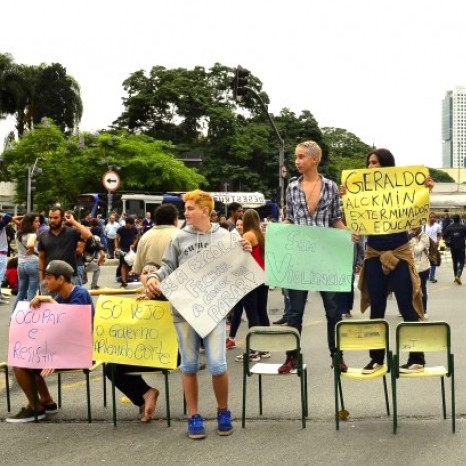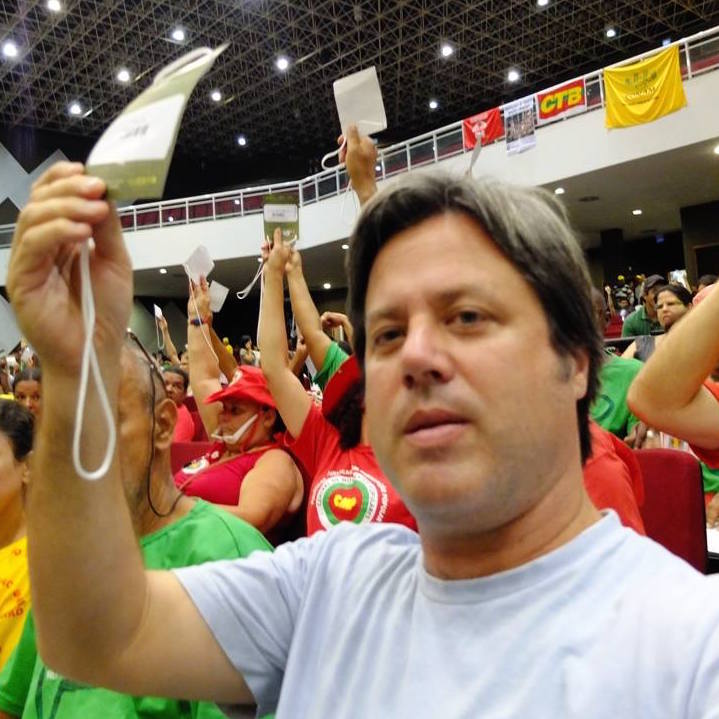CoverOp

Disaster by design: How corporations cash in on endless global war.
Journalist Antony Loewenstein examines the mechanisms through which corporations both fuel and profit from America's endless wars, from drones and interventions abroad to mass incarceration of prisoners and immigrants at home, and explains how establishment media became compliant to the process by pursuing access to power, not truth about its actions.
Antony is author of Disaster Capitalism: Making a Killing out of Catastrophe from Verso Books.

How students in Sao Paulo struck back against school closings.
Live from Sao Paulo, correspondent Brian Mier reports on last week's massive student strikes in opposition to school closings, where teenagers occupied campuses, shut down roads and faced off against police violence and ruling class animosity - and won a rare victory against a system with money for new prisons but not existing classrooms.
Brian covered the protest movement in the Brasil Wire article We Rule the School.

Blue collar, White death: Trending downward with working class Whites.
Writer Barbara Ehrenreich connects downward trends in working class White income and life expectancy to the resentment politics and personal violence we see everyday in mass media, and explains how anger is being turned towards minorities instead of the architects of inequality, and why the answer is solidarity, not scorn, from the left.
Barbara wrote the article Dead, White, and Blue The Great Die-Off of America's Blue Collar Whites for TomDispatch.

Consumer data and flex prices will mean the end of price transparency.
Authors Anna Bernasek and D.T. Mongan explain how companies are using consumer data to set prices unique to individuals, how this discriminatory pricing is legal and only going to increase as we enter a consumer unfriendly economy, and why challenging this practice requires addressing both corporate policies and our own consumerism.
[Some initial audio wonkiness - clears up by 3:30]
Anna and Dan are authors of All You Can Pay: How Companies Use Our Data to Empty Our Wallets from PublicAffairs.

Uncoverage: How two journalists broke the Laquan McDonald killing.
Journalists Brandon Smith and Jamie Kalven talk about the work of uncovering the circumstances (and video) of Laquan McDonald's shooting by police officers - from suing the City of Chicago to comply with FOIA requests, to challenging the compliance of media covering police misconduct - and explain why this case presents a serious challenge to the 'investigation as coverup' routine we see when power has something to hide.
Brandon and Jamie's story is covered in the Columbia Journalism Review story How a little-known, Uber-driving freelancer brought the lawsuit that forced Chicago to release a police shooting video.

On Brocialism, Hillsogyny and trouble at the political discussion group.
Jeff Dorchen reads Amber A'Lee Frost's Baffler article My Kind of Misogyny: I Don’t Care If They Call a Warhawk “Cankles” and then writes his own radio essay - on a new name for Hillary Clinton that I feel gross about writing here, on brocialism and silverbackness, the noncharismatic character actor-ness of Bernie Sanders, second degree transplaining at his monthly political discussion group, and the sour defeaty undertaste of victory in 2016.







